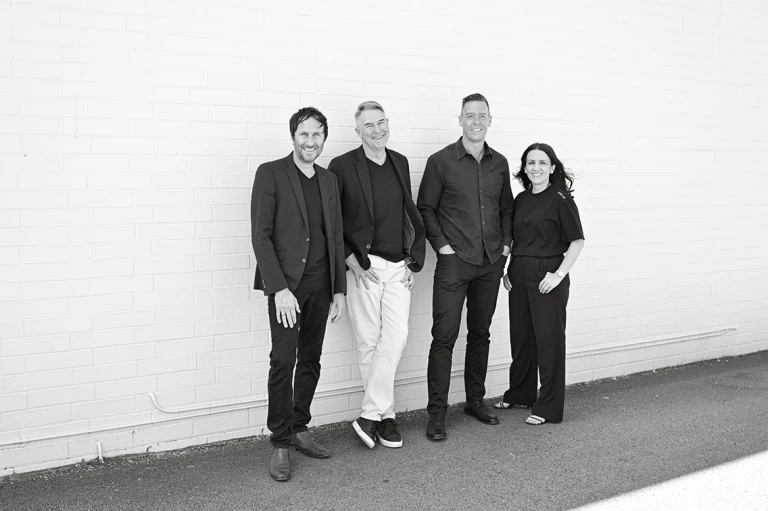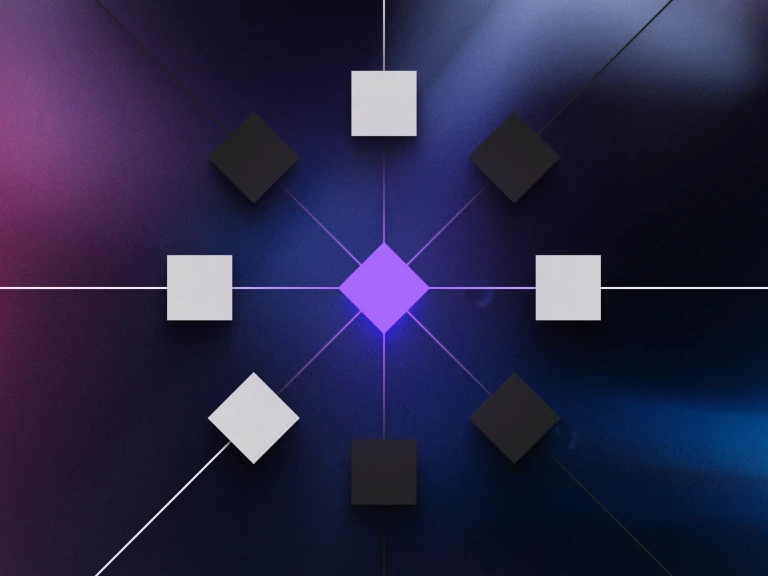Juicebox operates at the cutting edge of AI automation, helping our clients learn that the difference between experimental chatbots and production-ready systems lies not in better prompts, but in better architecture. We build custom MCP servers that transform unpredictable AI outputs into reliable business automations through deterministic validation of probabilistic generation.
What Are Custom MCP Servers?
Model Context Protocol (MCP) servers act as intelligent intermediaries between AI language models and your business processes. Unlike traditional API endpoints that simply pass data back and forth, custom MCP servers provide a validation and control layer that ensures AI-generated content meets specific business criteria before it ever reaches production.
Think of a custom MCP server as a quality control checkpoint in your AI workflow. While the language model generates creative content based on probabilistic patterns, the MCP server applies deterministic rules to validate, refine, and guarantee that outputs comply with your exact specifications.
This separation of concerns (letting AI handle creativity while custom code handles compliance) represents a key reframing of how successful organizations approach AI automation.
Explaining the Architecture
The key insight driving custom MCP server development is that successful AI automation requires a deterministic process that orchestrates probabilistic components. The overall automation workflow is deterministic: given the same input, it should reliably produce output that meets your specifications.
Within this deterministic framework, probabilistic AI models generate creative variations, while custom MCP servers provide deterministic validation that ensures compliance. This hybrid architecture solves the fundamental tension in AI automation.
Language models are inherently probabilistic, generating outputs based on statistical patterns learned from training data. Business requirements, however, are deterministic.
An invoice must include specific fields, a legal document must contain required disclaimers, a product description must meet character limits. Custom MCP servers bridge this gap by creating a deterministic wrapper around probabilistic generation.
Consider how this works in practice. The automation process begins with defined inputs and follows a deterministic workflow through a customized orchestration platform. When the workflow requires content generation, it calls an AI model for probabilistic creation.
The custom MCP server then validates this output against deterministic rules. If validation fails, the server provides specific feedback, triggering regeneration.
This loop iterates until the output meets all requirements or reaches a defined escalation point.
The Problem Custom MCP Servers Solve
Many businesses attempting AI automation fall into what we’re calling the "Process Mapping Trap." They try to force AI models to follow human processes through increasingly complex prompts, hoping that detailed instructions will produce consistent results.
This approach inevitably fails because it attempts to make probabilistic tools behave deterministically through instruction alone. A financial services firm might write elaborate prompts for generating compliance documents:
"Include risk disclosures in paragraph 2, maintain formal tone, ensure accuracy of all numerical data, follow regulatory guidelines."
Despite these detailed instructions, the AI might still omit critical disclosures, use inconsistent formatting, or include problematic phrasing. Each failure requires prompt rewrites that risk breaking what was previously working.
Custom MCP servers solve this problem by moving validation outside the generation process. Instead of hoping the AI follows all rules, the MCP server checks each output against specific criteria and provides targeted feedback for improvement.
This creates a self-correcting system that reliably produces compliant content regardless of how the AI model behaves.
Enterprise-ready Custom MCP Development
The power of custom MCP servers becomes clear when examining diverse enterprise automation needs. Every industry has unique requirements that generic AI tools cannot address.
A custom MCP server adapts to these specific needs through programmable validation rules. For document generation, it might verify that all required sections are present, technical terms are used correctly, and numerical data matches source systems.
For customer service automation, it could ensure responses acknowledge the customer's issue, provide actionable next steps, and include required disclaimers. For content creation, it might validate SEO keywords, readability scores, and brand voice consistency.
When content fails validation, the custom MCP server doesn't simply reject it. Instead, it provides specific, actionable feedback to the AI model:
"Missing required risk disclosure in investment summary. Add standard risk warning while maintaining current structure."
This feedback loop operates deterministically. The same validation failure always produces the same type of feedback, ensuring predictable system behavior even when working with unpredictable AI models.
The Competitive Advantage of Deterministic Process Design
Organizations that invest in custom MCP server development gain significant competitive advantages by achieving reliable automation processes that leverage AI capabilities. This architectural approach delivers reliability at scale, all day every day.
While competitors struggle with inconsistent AI outputs requiring constant human intervention, businesses with custom MCP servers can process thousands of documents, responses, or content pieces with guaranteed compliance. The deterministic nature of the overall process means that automation outputs are predictable and manageable.
Operations teams can confidently scale automation knowing that outputs will meet requirements. Compliance teams can audit the validation rules rather than reviewing every output.
Development teams can iterate on improvements without worrying about breaking existing functionality. Custom MCP servers also enable rapid adaptation to changing requirements.
When regulations change, when brand guidelines evolve, or when new best practices emerge, updates to the MCP server's validation rules immediately apply across all workflows. This agility is impossible with prompt-based approaches that require finding and updating every affected instruction across multiple systems.
Implementing Custom MCP Servers in Your Organization
The path to implementing custom MCP servers begins with recognizing that you're not automating human work but reengineering processes to achieve the same or better outputs. This shift in thinking, pioneered by companies like Juicebox that specialize in advanced AI process automation, is transforming how organizations approach AI implementation.
We start by identifying processes where probabilistic generation adds value but deterministic validation is essential. Document generation, data extraction, customer communications, content creation, and report writing are common candidates. For each process, we define the measurable characteristics of acceptable output.
These become our validation rules. Next, we design a deterministic workflow that orchestrates various generative models as components of a cohesive, output-oriented system.
The workflow handles input processing, AI generation, MCP validation, iteration logic, and output delivery in a predictable, repeatable manner. The custom MCP server is the validation point, ensuring that no matter how creative or variable the AI generation, the final output meets specifications.
Success with custom MCP servers requires collaboration between domain experts who understand business requirements and technical teams who can encode these requirements into validation logic. The result is a system that combines the best of both worlds: the creativity and flexibility of AI with the reliability and predictability of deterministic processes.
The Future of AI Automation
As more businesses (including your competition) unlock the efficiencies of AI automation, the need for custom MCP servers will only grow. The question isn't whether AI can generate content.
Modern language models excel at creation. The question is whether that content reliably meets business requirements within a deterministic automation framework.
Organizations that recognize this architectural pattern and invest in custom MCP server development today are building the foundation for scalable, reliable AI automation. They understand that the goal isn't to constrain AI into deterministic behavior but to build deterministic systems that harness probabilistic AI capabilities effectively.
In the evolution from prompt engineering to outcome engineering, custom MCP servers provide the critical infrastructure that makes enterprise AI automation possible. They're the key to transforming experimental AI projects into production systems that deliver consistent business value.
The future belongs to organizations that master this hybrid architecture: deterministic processes orchestrating probabilistic intelligence through custom MCP server validation. Juicebox is here to build it for you.
Ready to Talk?
Are you ready to move beyond experimental AI to production-ready automation? Contact Juicebox to discover how custom MCP server development can transform your existing workflows into reliable, scalable business systems.










